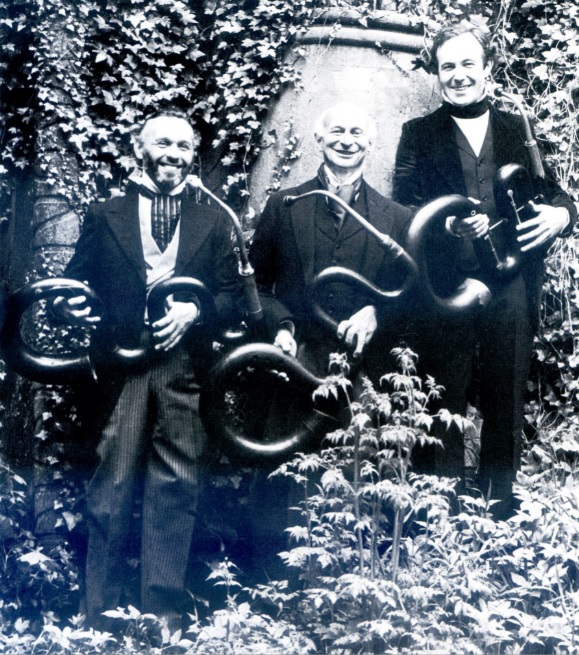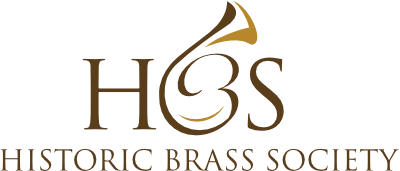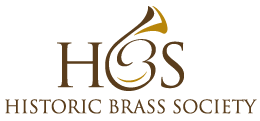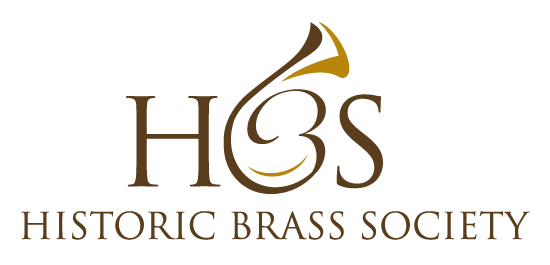Alan Frederick Lumsden passed away peacefully on the 30 September 2020. An exceptionally versatile musician on a large number of early brass and woodwind instruments, he was a founding member of the London Trombone Quartet, the London Cornett and Sackbut ensemble, and the London Serpent Trio. Alan held the positions of Professor of the Sackbut at the Royal College of Music, Professor of the Recorder and Early Music studies at the Birmingham Conservatoire, and Head of Brass at Malvern College.

Whilst at University of Cambridge he earned money by playing in the university dance band and translating Russian Music Catalogues for Musica Rara. It was during this time that Alan started arranging and editing, publishing over 30 editions of early wind and brass music for Musica Rara. On leaving Cambridge University, he made three trips to Russia, selling clothes on the black market in order to buy music and bring back rare editions of Glinka and other lesser known Russian composers to the West. On the last trip he was thwarted by the Russian authorities and given a suspended sentence of three years hard labour in Siberia!
Alan played trombone with the London Philharmonic Orchestra, the London Symphony Orchestra, the Royal Philharmonic Orchestra, the Hallé, the BBC Scottish Orchestra and many more. It was at this time that he founded the London Trombone Quartet with Tony Moore (first trombone of the London Philharmonic Orchestra), John Edney, and John Pritchard on bass trombone. He gave the English premiere of Rimsky Korsakov’s trombone concerto in Chelsea Town Hall, London and played the solo first trombone part in the first UK performance of Mahler’s Third symphony. He also gave the first London performances of the Bloch Trombone Concerto and the Milhaud Concertino for Trombone and Strings and the first performance, this side of the Iron Curtain, of the Serocki Trombone Concerto.
Alan was a great friend of David Munrow, sharing his enthusiasm for early music, and started to play more in the early music field. David became aware that there was an opportunity to diversify into "authentic" early music performance by procuring historic instruments. Alan acquired a Meinl and Lauber copy of an instrument by Hans Neuschel. It was on this instrument that Alan performed Albrechtsberger’s Concerto for Sackbut at the City of London Festival.
A self-taught multi-instrumentalist, Alan was fortunate in that he had a natural ability to change from one instrument to another and found himself much in demand as an early music specialist. In the late sixties, he was playing with Musica Reservata (including at the Proms), The London Brass Consort, The Monk Consort of Cornets and Sackbuts, and with David Munrow’s Early Music Consort as they recorded and broadcast a substantial body of medieval music and began to forge an international reputation. This led to work with the BBC including David Munrow’s television series, “Ancestral Voices” (five programmes detailing the evolution of instruments such as horns, flutes and the hunting bow). He also recorded music for BBC television productions of Romeo and Juliet, Measure for Measure, King Henry VIIIth, and played trombone, ophicleide, serpent and percussion for the Dr. Who episode, "Revenge of the Cybermen."
Alan recorded over 100 tracks for CD and film, including Ken Russell’s film, The Devils - which saw the Early Music Consort of London collaborating with Peter Maxwell Davies - and Ridley Scot's film, Alien. At the time, he was the only musician to have broadcast and recorded on the ophicleide (for the LP, Music All Powerful: Music to Entertain Queen Victoria, 1968.) He also played the ophicleide on the album No Roses with the English Folk singer Shirley Collins and the Albion Country Band.
The London Serpent Trio was founded by Christopher Monk, along with Alan and Andrew van der Beek, to spread the awareness of the instrument throughout the UK, Europe, and the USA. Their first performance took place on 1st April 1976 at St Johns Smith Square in London. The name had a humorous touch as there were already well known groups such as the London String Trio and the London Wind Trio. The London Serpent Trio played mainly 18th century wind trios, three part Renaissance polyphonic music, recorder trios, and the Scottish composer Judith Weir wrote an arrangement of “Cherry Ripe” for the group. Alan participated in the Serpent Celebration concert held in London in 1990 to mark the 400th anniversary of the Serpent with 58 guest serpents from around the world, the largest assembly of serpent players for at least 200 years, and he performed the premier of the Simon Proctor’s Serpent Concerto in 1989 at the International Serpent Festival in America and the world premiere of Peter Maxwell Davies’ opera Tavener at Covent Garden.
In latter years, he continued his early music research, creating editions under the imprint "Beauchamp Press" and inviting colleagues to tutor in the Beauchamp Early Music Courses, which are still flourishing today. Alan ran the Early Music Courses for over 25 years, and his editions, often the first practical performing material since the original prints, now number well over 500 works. Beauchamp Press centred on the period 1530-1660 and has produced over 100 works of Schultz, 60 Giovanni Gabrieli, 42 Lassus, 38 Andrea Gabrieli, 32 Praetorius, and 27 Palestrina.
Alan was diagnosed with Alzheimers in 2012. He leaves behind his beloved wife of 46 years, Caroline, four children, 9 adoring grandchildren, and a wealth of musical memories.
Emma Lumsden Denton



